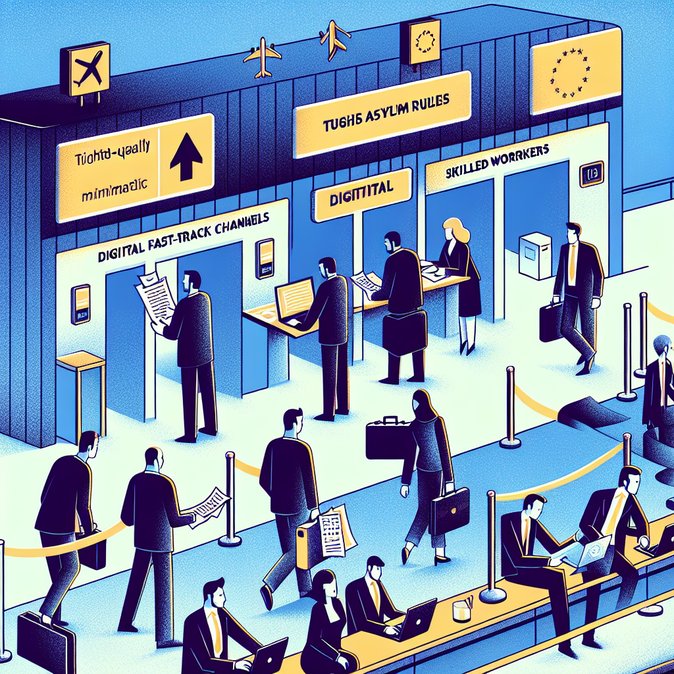
A comparative survey by Reuters published late on 17 November shows that a coalition of European governments is moving in lock-step to tighten asylum procedures while, paradoxically, easing pathways for selected skilled migrants.
For Germany the report confirms a two-track strategy championed by Chancellor Friedrich Merz’s coalition: faster rejection and removal of applicants deemed to have little prospect of success, coupled with streamlined residence and citizenship options for highly integrated foreign professionals. Interior Minister Nancy Faeser says more than 6,000 people were deported in the first quarter of 2025—a 55 % jump on 2023—while federal police have blocked 50,000 attempted irregular entries at re-introduced Schengen border checkpoints since mid-September.
![EU asylum clampdown gathers pace as Germany accelerates deportations and skilled-migration pivot]()
In parallel, the Foreign Ministry’s fully digital national-visa portal and the forthcoming ‘Work-and-Stay Agency’ promise end-to-end online processing for employers that can prove genuine labour shortages. Critics warn the approach risks creating a two-tier system, but business associations say faster skills visas are essential to tackle Germany’s 400,000-worker shortfall.
At EU level, nine member states are lobbying for changes to the European Convention on Human Rights that would make expulsions of foreign criminals easier. Berlin has so far kept a low profile in that debate but is expected to support measures that reduce procedural obstacles to returns.
Mobility practitioners should monitor the evolving asylum–skills trade-off: compliance risks are rising for humanitarian transfers, yet corporate work-permit lead times could fall sharply once the new digital agency opens in early 2026.
For Germany the report confirms a two-track strategy championed by Chancellor Friedrich Merz’s coalition: faster rejection and removal of applicants deemed to have little prospect of success, coupled with streamlined residence and citizenship options for highly integrated foreign professionals. Interior Minister Nancy Faeser says more than 6,000 people were deported in the first quarter of 2025—a 55 % jump on 2023—while federal police have blocked 50,000 attempted irregular entries at re-introduced Schengen border checkpoints since mid-September.

In parallel, the Foreign Ministry’s fully digital national-visa portal and the forthcoming ‘Work-and-Stay Agency’ promise end-to-end online processing for employers that can prove genuine labour shortages. Critics warn the approach risks creating a two-tier system, but business associations say faster skills visas are essential to tackle Germany’s 400,000-worker shortfall.
At EU level, nine member states are lobbying for changes to the European Convention on Human Rights that would make expulsions of foreign criminals easier. Berlin has so far kept a low profile in that debate but is expected to support measures that reduce procedural obstacles to returns.
Mobility practitioners should monitor the evolving asylum–skills trade-off: compliance risks are rising for humanitarian transfers, yet corporate work-permit lead times could fall sharply once the new digital agency opens in early 2026.








